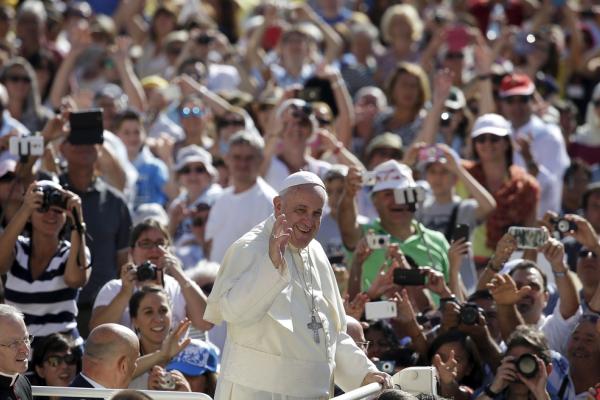Apr 22, 2025
The pope’s final months have felt to me like the times when my grandparents were at the end of their lives. We waited for updates from the doctors. We waited with dread for the phone call — or in this case, breaking news emails and social media posts — to bring the final news. There were moments of hope, including Pope Francis emerging from the hospital and appearing in St. Peter’s Square. But we knew that at some point, we’d be facing the loss of someone we loved.
Read the Full Article

Already a subscriber? Login
